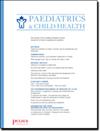将交叉性纳入儿童健康研究:主要考虑因素
IF 2
4区 医学
Q2 PEDIATRICS
引用次数: 0
摘要
加拿大持续存在儿童健康不平等现象,特别是在需要维护主权的原住民、梅蒂斯人和因纽特人群体以及需要维护公平的社区中。我们主张从根本上改变研究方法,通过交叉视角来纠正这些不公平现象,突出社会身份和权力体系是如何造成差异的。具体而言,我们建议:(a) 从研究概念的形成到成果的传播,都要结合交叉性;(b) 以尊重和互惠的方式与社区合作;(c) 以尊重的方式收集和报告数据;(d) 认识和解释社会类别的多样性;(e) 应用交叉性分析方法;(f) 采用多样化、参与性和包容性的传播策略。我们进一步强调,研究人员必须承认自己的立场和在促进反思方面的作用,并在整个 研究过程中采用公平、多样性和包容性原则。我们呼吁大家共同承诺,在儿科研究中采用交叉和平等参与的方法,为所有儿童创造更加公平的健康环境铺平道路。本文章由计算机程序翻译,如有差异,请以英文原文为准。
Integrating intersectionality into child health research: Key considerations
Child health inequities persist in Canada, particularly among sovereignty-deserving First Nations, Métis and Inuit groups and equity-deserving communities. We argue for a fundamental shift in research to remedy these inequities, via an intersectional lens that highlights how social identities and systems of power contribute to disparities. Specifically, we suggest (a) integrating intersectionality, from research conceptualization to results dissemination; (b) respectfully and reciprocally engaging with communities; (c) respectfully collecting and reporting data; (d) recognizing and explicating the diversity within social categories; (e) applying intersectional analytical approaches, and (f) using diverse, participatory and inclusive dissemination strategies. We further underscore the importance of researchers acknowledging their positionalities and their role in promoting reflexivity, as well as using equity, diversity and inclusion principles throughout the research process. We call for a collective commitment to adopt intersectional and EDI approaches in paediatric research, paving the way towards a more equitable health landscape for all children.
求助全文
通过发布文献求助,成功后即可免费获取论文全文。
去求助
来源期刊

Paediatrics & child health
医学-小儿科
CiteScore
2.10
自引率
5.30%
发文量
208
审稿时长
>12 weeks
期刊介绍:
Paediatrics & Child Health (PCH) is the official journal of the Canadian Paediatric Society, and the only peer-reviewed paediatric journal in Canada. Its mission is to advocate for the health and well-being of all Canadian children and youth and to educate child and youth health professionals across the country.
PCH reaches 8,000 paediatricians, family physicians and other child and youth health professionals, as well as ministers and officials in various levels of government who are involved with child and youth health policy in Canada.
 求助内容:
求助内容: 应助结果提醒方式:
应助结果提醒方式:


